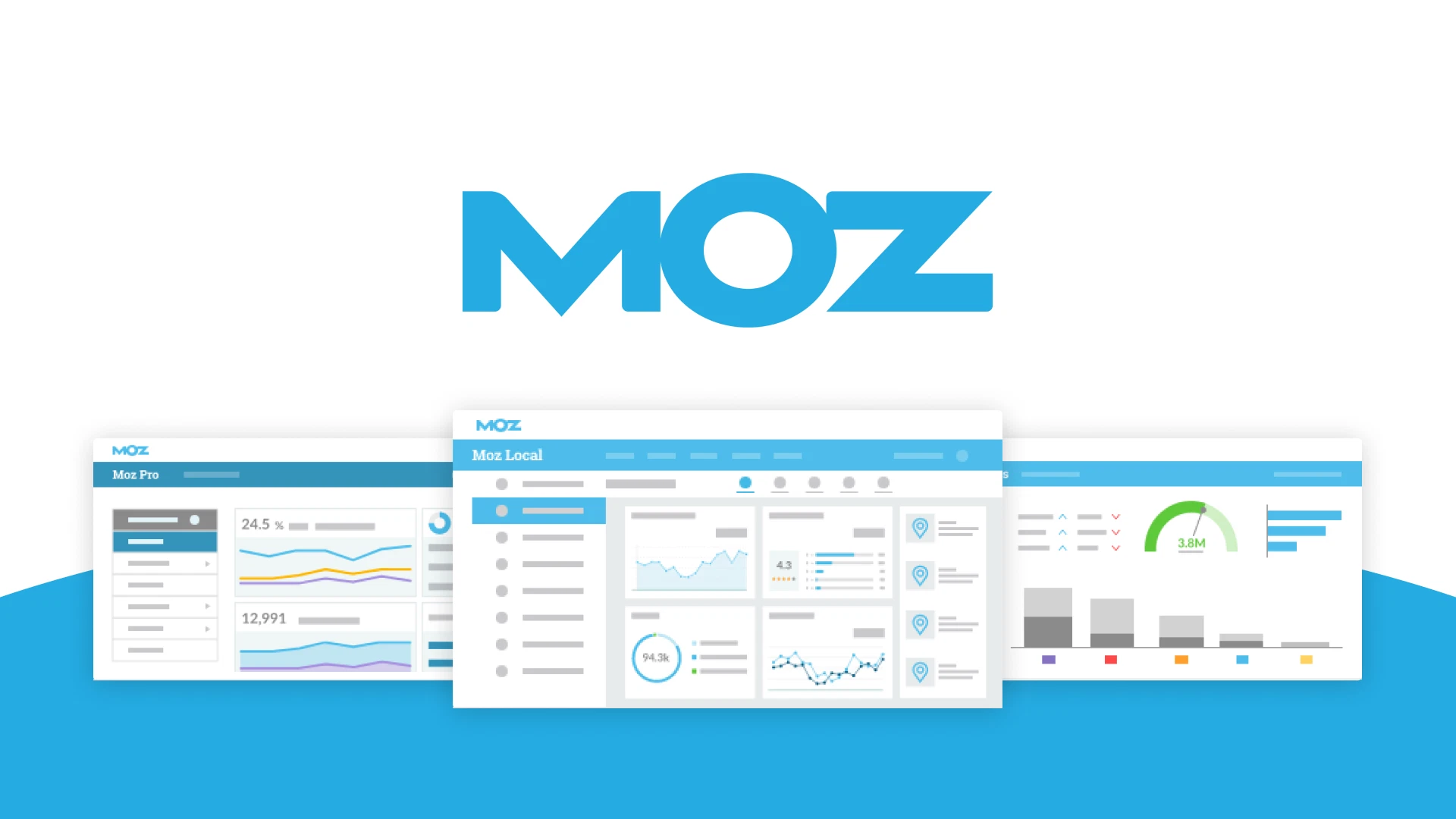Moz keyword research is one of the central practices in modern SEO strategy. This prominent company in the field of search engine optimization has developed a suite of tools that help marketers, content strategists, specialists of search engine optimization and businesses identify, analyze, and target the most effective keywords to drive organic traffic. To understand Moz keyword research fully, it’s important to appreciate not only how the Moz tools work but also the broader role of keyword research in search marketing.
Moz Keyword Research
At the core of Moz keyword research, there is the process of discovering what words and phrases people type into search engines when looking for information, products, or services. These queries are crucial because they serve as the connection point between a business’s content and its potential audience. Moz keyword research tools aim to simplify and enrich this process, giving users actionable insights about search volume, competition, and relevance.
The central component of Moz’s offering is the Keyword Explorer, which is a web-based tool that allows users to enter a seed word or phrase and receive a detailed analysis, typically including search volume estimates, keyword difficulty scores, organic CTR opportunity, and a proprietary metric called Priority. Moz also supplies related keyword suggestions and Search Engine Results Page (SERPs) analysis.
When a user enters a word or phrase, Moz’s Keyword Explorer pulls in a wealth of data from its own database, which is built through extensive crawling of the web, integration with clickstream data providers, and analysis of search engine result pages. This dataset is one of the largest in the SEO industry and is constantly updated to ensure relevance and accuracy.
Search volume is one of the primary metrics reported. It represents the estimated average number of times a keyword is searched in a given time period, usually monthly. Moz provides a range rather than a precise number, reflecting the reality that search volume estimates are inherently fuzzy because Google does not provide exact numbers to third-party providers. Still, Moz’s estimates are widely regarded as reliable enough for strategic decision-making.
Keyword difficulty is another central metric in Moz’s system. It reflects how challenging it is to rank on the first page of search results for a given keyword. The score is based on the domain as well as page authority, and backlink profiles of the pages that already rank for that keyword. A higher difficulty score means that the top-ranking pages are well-established and well-linked, suggesting that competing for that keyword will require significant effort in content quality and link-building.
Organic CTR opportunity is a metric designed to help users understand how likely searchers are to click on an organic result for the keyword. This is critical because some search terms return results with many paid ads, featured snippets, local packs, or other SERP features that can reduce the share of clicks available to organic listings. A high CTR score suggests more opportunity for traffic if one can rank.
Priority is Moz’s attempt to roll these metrics into a single number. It weighs volume, difficulty, and organic CTR, allowing users to quickly assess which keywords may offer the best balance of demand, achievability, and opportunity. This is especially useful for marketers who need to prioritize limited resources toward keywords with the highest potential ROI.
Beyond these metrics, Moz’s Keyword Explorer also suggests related keywords. This feature is invaluable for building out content plans, identifying less competitive long-tail variants, and understanding the topical space around a seed term. These suggestions often include synonyms, semantic variations, and other phrases users might search for. Moz also provides a Keyword Suggestions section that can be filtered by relevancy, lexical similarity, volume, and other attributes.
SERP Analysis is another strength of Moz keyword research. It allows users to inspect the actual top-ranking pages for a query, including their page as well as domain authority scores. This helps SEO specialists understand the competitive landscape in detail and identify content gaps or linking strategies that might be required to outrank incumbents. For instance, if the SERP is dominated by high-authority domains with many backlinks, the difficulty score will be high, signaling that one might want to consider an alternative target.
Moz keyword research functionality is included in the broader Pro suite. The Campaigns feature, for example, allows users to track rankings over time for selected keywords, monitoring their performance in the SERPs and understanding how on-page optimizations or link-building efforts impact visibility.
Another aspect of Moz keyword research ecosystem is the integration with link metrics. The company’s proprietary Domain Authority (DA) and Page Authority (PA) scores have become industry-standard benchmarks for estimating how well a site or page might rank in search engines. When evaluating keyword difficulty, Moz combines these link metrics with other factors like content relevance and SERP features to deliver a nuanced view of the competition.
Moz also supports keyword list building. Users can save keywords into lists for later reference, compare metrics across multiple keywords side by side, and organize research efforts around specific campaigns or clients. This is especially useful for agencies or teams working with multiple brands, products, or geographies, as it allows for collaborative planning and prioritization.
Moz keyword research is not just about finding high-volume or low-difficulty keywords, but aligning content strategy with user intent. The company places significant emphasis on understanding the searcher’s intent, whether a query is informational, navigational, transactional, or commercial. Moz’s keyword suggestions and SERP analysis help users interpret the types of content that Google favors for different queries, thereby informing content strategy.
For example, if a search is likely having a commercial investigation intent, the SERP might favor buying guides, reviews, or comparison posts. Meanwhile, with a clearly informational intent, the priority should be given to tutorials and guides. Moz’s analysis of the SERP can help marketers tailor their content appropriately.
Moz keyword research is also supported for local SEO, though its features are not as specialized as those of tools like BrightLocal or Whitespark. Still, it is a separate product that helps businesses manage their citations and local listings, complementing the broader keyword strategy with discoverability locally.
One of the strengths of Moz’s approach is its commitment to transparency and education. The company has long been known for its educational content, including the its blog, academy courses, and the famous Beginner’s Guide to SEO. Moz keyword research tool is designed to be accessible to users who may not be technical specialists, with clear explanations of metrics and recommended workflows.
As mentioned previously, from a practical workflow perspective, Moz keyword research often starts with brainstorming a set of seed keywords that reflect a site’s products, services, or topics of interest. Users enter these seeds into Keyword Explorer to generate lists of related keywords, analyze metrics, and prioritize targets. From there, they might build out a content calendar, develop landing pages optimized for chosen terms, and monitor rankings over time with Moz’s Campaign tracking.
Moz’s Keyword Explorer is often compared to other tools in the industry, such as Ahrefs, SEMrush, and Google Keyword Planner. Each tool has its own strengths and weaknesses. For example, the massive backlink index is an advantage for Ahrefs, which tends to have more precise keyword difficulty scoring, and also including advanced clickstream data for volume estimation. SEMrush is well-known for its suite of marketing features, including competitive analysis, PPC planning, and content marketing tools.
On the other hand, Google Keyword Planner is free but designed primarily for advertisers and tends to bundle keyword volume into broad ranges unless one has an active ad spend. Moz differentiates itself with an emphasis on user-friendliness, transparent methodology, and a strong focus on organic SEO rather than paid search or broader marketing. Its keyword difficulty scoring, for example, is widely trusted and has become an industry benchmark. Moz’s Priority metric is also a unique value proposition, designed to simplify the often-complex balancing act between search volume, difficulty, and CTR opportunity.
Moz Pro subscribers get a certain number of keyword queries per month, depending on their plan. This means that while the tool is accessible, it is also metered, and users need to plan their research sessions. However, Moz’s pricing is generally competitive relative to other professional-grade SEO tools, making it accessible to agencies, in-house teams, and even serious solo marketers.
Moz also integrates with other SEO tools and workflows. While it is not as fully integrated with PPC tools as SEMrush or as focused on link analysis as Ahrefs, it offers API access, allowing custom integration into proprietary dashboards or workflows. This can be valuable for large agencies or in-house teams that want to unify reporting across multiple data sources.
The value of Moz keyword research lies in its ability to help marketers make informed decisions about what content to produce, how to optimize existing pages, and where to focus link-building efforts. By identifying high-value keywords with manageable competition and good organic CTR potential, marketers can achieve better rankings, more traffic, and ultimately conversions.
One best practice with Moz keyword research is to use it in combination with real-world data from Google Analytics and Search Console. For instance, Moz might be used to discover new keyword opportunities, but then those opportunities should be validated by looking at how similar topics have performed on your own site. This integration of third-party and first-party data creates a feedback loop that refines keyword targeting over time.
Another advanced strategy is to use Moz’s SERP Analysis for identifying content gaps. By studying the top-ranking pages for a target keyword, marketers can identify themes, subtopics, or features those pages have that their own site lacks. This competitive intelligence informs content development, ensuring that new or updated pages are genuinely competitive in the eyes of search engines.
Moz’s keyword lists also facilitate collaboration between SEO teams, content writers, and marketing strategists. A shared list of keywords with metrics allows teams to align around the same priorities, ensuring that resources are directed toward high-value content initiatives rather than scattered across low-impact topics.
Moz’s data can also be used to support client reporting in an agency setting. By demonstrating search volume trends, difficulty changes, and ranking improvements over time, agencies can justify their strategies and show measurable progress to clients.
Another useful feature of Moz’s Keyword Explorer is its ability to surface long-tail keyword variations. These are lower-volume, often lower-competition phrases that can deliver highly qualified traffic. While the total traffic potential is smaller, the conversion rate for long-tail keywords is often higher because they reflect more specific intent, being for example much more transactional than the broader ones. Moz can help surface such nuanced opportunities.
In addition, Moz keyword research is part of a holistic SEO suite. Users don’t just find keywords, but they can also audit their sites with Site Crawl, track rankings over time, analyze backlink profiles, and manage local listings with Moz Local. This integration supports the idea that Moz keyword research is not a standalone task but a critical part of a broader, continuous SEO process.
Critics of Moz keyword research sometimes point out that its volume estimates can be less precise than those of Ahrefs or SEMrush, or that its database of paid keyword data is smaller. Others note that its interface, while user-friendly, can feel slower or less feature-rich than some competitors. However, many specialists appreciate Moz’s straightforward approach and the transparency with which it explains its metrics and methodology.
Moz also emphasizes ongoing innovation. Over time, the company has expanded its keyword data sources, improved its difficulty algorithm, and added features like advanced filtering, SERP feature tracking, and local pack analysis. The company’s team is active in the SEO community and responsive to user feedback, ensuring the Moz keyword research tool remains relevant even as Google’s algorithms and SERP features evolve.
Moz keyword research is not just a technical process but also a creative and strategic one. It requires marketers to think deeply about their audience, what it wants, how it searches, what language it uses, and what kind of content best serves it. Moz keyword research tools provide the data and analysis needed to make these decisions with confidence, but ultimately the success of targeting depends on thoughtful implementation.
For new users, Moz offers a learning curve that is generally considered manageable. The company’s onboarding materials, help guides, and educational resources are among the best in the industry. Even someone with minimal SEO experience can learn to use Keyword Explorer effectively with a bit of study, while advanced users can dig into SERP analysis and Priority scoring to refine their strategies.
Moz keyword research is a comprehensive approach to understanding and targeting the words and phrases that connect searchers to a website. Moz’s Keyword Explorer, Campaign tracking, SERP analysis, and keyword list management provide a structured and effective workflow for discovering opportunities, evaluating competition, and prioritizing content. The Moz keyword research tool’s emphasis on transparency, user education, and organic SEO makes it a popular choice among professionals who want reliable, actionable insights without unnecessary complexity.
By combining Moz’s data with other sources of insight, from Search Console to customer research, marketers can build SEO strategies that not only rank but also deliver meaningful business results. In an increasingly competitive search landscape, the ability to choose the right battles, to target the keywords with the right mix of volume, difficulty, and intent, can make the difference between a page that is stuck on page three and one that drives consistent, high-value traffic. Moz keyword research tools are designed to make that choice easier, more informed, and ultimately more successful.
Moz keyword research ecosystem is not static, but it is designed to support an iterative approach to SEO. One of the most valuable aspects of using Moz over time is the ability to monitor how keyword rankings evolve. Through the Campaigns feature, users can see how their positions in the SERPs change monthly, track the impact of on-page optimization, content updates, and link-building campaigns. This ongoing measurement is essential because SEO is rarely a set it and forget it exercise. Search algorithms change, competitors improve their content, and user behavior evolves, all of which can shift the competitive landscape for any keyword.
Additionally, Moz keyword research tools encourage marketers to think beyond individual keywords and toward topics and themes. Google’s own ranking algorithms increasingly rely on understanding the topical authority of a site, rewarding content that comprehensively covers a subject area. Moz’s related keyword suggestions, SERP analysis, and content gap identification make it easier to design content strategies that go beyond single keywords and address entire subject areas in a way that is both user-friendly and algorithmically attractive.
Furthermore, Moz supports collaboration across marketing departments. Because keywords can be saved into lists and shared within Pro accounts, teams can align around a single strategy. This is particularly useful in agency settings or large organizations with multiple stakeholders, ensuring that SEO goals, content calendars, and resource allocation are harmonized. Instead of ad hoc or fragmented keyword targeting, Moz enables a systematic approach where everyone works toward the same prioritized goals.
Finally, the broader philosophy is rooted in accessibility and transparency. Unlike some competitors who might obscure how their metrics are calculated, Moz explains its methodologies openly, fostering trust and educating users. This commitment to education empowers marketers at all levels to make better decisions. Moz keyword research tools, when used thoughtfully, help transform raw data into a coherent, high-impact SEO strategy that can deliver sustained growth in organic traffic and real business value.








